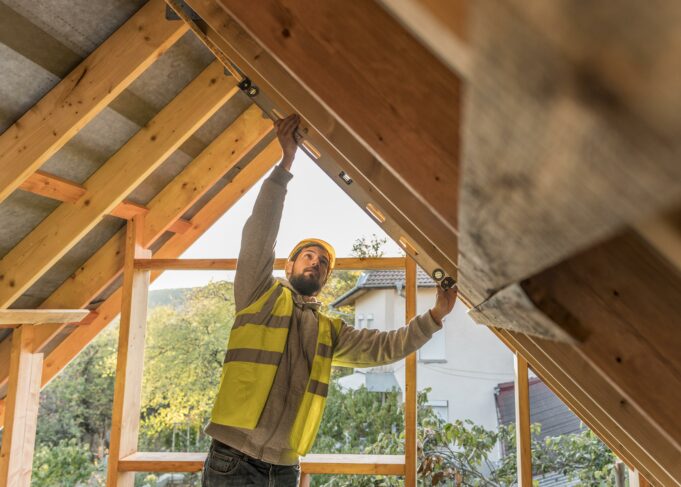Written by Green
When a rental property produces a small or negative return, there could be any number of factors to blame. But excessive maintenance issues and repairs are among the most common.
In many cases, this concern can be traced back to the investor’s failure to perform due diligence when researching the property and crunching the cash-flow numbers. If you’re an investor in real estate, you have to take repairs and maintenance seriously.
From the moment you start analyzing a potential purchase, this has to be at the front of your mind. If it is, you’ll experience fewer unpleasant surprises and enjoy a healthier ROI.
**Average Annual Cost of Rental Property Repairs**
When you’re looking at home systems, appliances, and natural materials with a limited life span, there’s no way of knowing for sure when something will break down or how long it will last. But you can be assured of one thing: Stuff will fail.
The more meticulous you are about estimating property maintenance costs, the better prepared you’ll be when problems arise. Here are several rules of thumb that investors have regularly employed:
**The 1 Percent Rule .** This might be the most popular one. It states that on average, maintenance costs on an investment property will amount to roughly one percent of the property’s total value per year. That means you can expect to spend $2,500 each year on a $250,000 property.
**The 50 Percent Rule .** This one advises you to set aside 50 percent of your monthly rental property income to cover operating costs. Those include taxes, insurance, and maintenance.
**The 5X Rule .** This rule holds that maintenance will cost 1.5 times the monthly rent per year. If your rent is $1,000, this means your average maintenance costs will be $1,500 per year.
**The Square Footage Formula . **With this approach, you assign a value of $1 for every square foot of your rental property and set that amount aside for annual maintenance. Thus, a property that’s 2,500 square feet would require $2,500 in maintenance.
There’s no one-size-fits-all equation. And as you’ll see, some of these rules contradict one another. The point is that you ought to plan ahead.
Pick a formula that appears the most relevant to your situation and use it. Setting aside some money for future maintenance, no matter the method, will always be better than not setting anything aside at all.
**6 Repairs You Should Prep For**
Again, to stress the obvious: There’s no way to know when a system will break down, what sort of maintenance will be required, or which circumstances your property will face over time.
All it takes is one natural disaster or unforeseen plumbing leak and everything you thought you knew goes out the window. Fortunately, such emergencies tend to be few and far between. For the most part, you’ll be just fine if you prepare for the following common maintenance issues.
**1. Major Appliances Stop Working**
Appliance-related issues are among the most common repair requests you’ll hear about from tenants. Refrigerators, stoves, and dishwashers will stop working.
“Unless a new appliance is needed, the typical cost to fix this problem is between $50 and $100 per hour, and handy people can handle most repairs in one hour,” Brandon Turner writes for BiggerPockets.
“If you do need a new appliance, consider buying it used instead of new. Used appliance stores exist in almost every town, and especially in the case of stoves, they sell units that are just as good as new ones.”
AC units and furnaces are also common culprits. These can typically be repaired as well. However, when they reach the end of their life, you can expect to pay several thousand dollars for the work. This is why it’s wise to save up money in an account month by month, so it’ll be there when you need it.
**2. Water Leaks**
There are scary water leaks and there are minor ones. If you can catch a minor water leak early enough, it’s typically not a big deal. But they must be dealt with promptly.
You’ll most often see leaks in the form of water dripping from faucets, leaking underneath sinks, and seeping through windows and the ceiling. Ask a qualified professional to come out, diagnose, and treat the problem.
**3. Garbage Disposals**
Garbage disposals are convenient, but they can wreak havoc on your plumbing. They also break down frequently.
Such problems can stem from any number of issues, including tenants who drop items in the disposal that don’t belong there. Happily, most disposals can be fixed with a phone call to a handyman or plumber.
Your best bet is to educate tenants about what can and cannot go in the disposal, though. This will reduce the frequency of hassles.
**4. Clogged Toilets**
Is there anything worse than a clogged toilet? It’s nasty and could potentially lead to serious plumbing issues, leaks, and even burst pipes (if not properly handled).
Clogs usually happen when tenants flush something that isn’t designed to be disposed of down a toilet. You’ll find cotton bolls, tampons, baby wipes, q-tips, and even household items or toys at fault.
**5. Pests**
Okay, we lied. There is something worse than a clogged toilet: Live pests and rodents on the loose in your rental property. Squirrels, mice, ants, spiders – you’d be surprised what can find its way into a house.
Left alone, they can multiply and even cause damage to your property. (For example, a squirrel in the attic can chew through wires.) Be proactive in preventing pests in the first place.
**6. Smoke Detectors**
This is a minor issue in itself, but you will have smoke detector batteries die on a regular basis. The best thing you can do here is supply tenants with batteries and show them how to replace them on their own. The only way this can become a major expense is if you have to take time out of your schedule to visit the property regularly and replace batteries yourself.
Source: [Green Residential Property Management](https://www.greenresidential.com/6-rental-property-repairs-you-should-prepare-for/)
Shared from Green Residential











